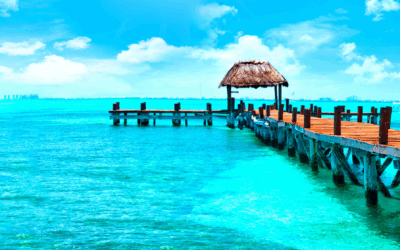You’ve burnt the candle at both ends all year. You’ve sacrificed “your time” to build your business, all to be hit with a massive tax bill of 35%, 40%, or even 50%.
You now have less money to put back into your business and accelerate growth, less to put into other investments, and less money all around to cover your needs and live the lifestyle you want.
It’s time to do something different.
When I was trying to get my first business off the ground, I felt trapped underneath a hefty tax bill – just like you feel now.
And while many business owners throw up their hands and accept a lifetime of business-crushing tax bills, I took a leap.
I incorporated offshore and legally lowered my tax rate from 43% to single-digit numbers.
Now, I travel the world and help others gain the same advantage by designing holistic personalized blueprints for successful entrepreneurs and investors who know the value of using tools like offshore companies.
Will you be my next success story?
WHY YOU SHOULD INCORPORATE OFFSHORE
TAX OPTIMIZATION
Shifting the tax burden that’s currently imposed upon your company is key to growing and scaling your company further.
ASSET PROTECTION
You can count on your offshore entity to protect your assets from both impending litigation and political unrest.
ANY TYPE OF BUSINESS
Many businesses would benefit from going offshore, including IP holders, consultants, traders, e-commerce vendors, crypto, and international investors.
IT’S TOTALLY LEGAL
The offshore world isn’t an illegal or incredibly complex thing like the media has made it out to be. Nor is it only about optimizing your tax rate.
There is much more to it, and we’ll cover it all in full detail below.
So, let’s do away with the misconceptions and fear-mongering that are the by-products of the Panama Papers, the Paradise Papers, and Hollywood’s portrayal of shady offshore practices that have been dead for decades.
Honest, law-abiding entrepreneurs want to go where they are treated best – as should you.
And this is more than possible with an offshore company.
LET US CREATE YOUR HOLISTIC OFFSHORE PLAN
WHAT IS AN OFFSHORE COMPANY?
Things can seem scary when you know nothing or very little about them.
But an offshore company is nothing more than a legal entity in a country other than where you operate.
That’s all.
Let me repeat, an offshore company is nothing more than a company that you legally set up in another country.
If you live in the UK and you open an LLC in the United States to do business there, that’s an offshore company.
See? Not that scary.
Huge companies with many more intricacies and complex structures to think about do it all the time. Think Starbucks, Amazon, Google, and Apple, among many, many others.
They have incorporated offshore companies to save themselves a lot of money and to grow their businesses on their own terms, with no credit given to politicians and governments.
It’s not that different for the average six- or seven-figure entrepreneur, patent or trademark holder, crypto trader or international consultant.
An offshore company can give you back the control over your own business.
You can lessen your tax burden, gain more privacy, potentially have less paperwork to deal with, et cetera.
GET ACTIONABLE TIPS FOR REDUCING TAXES AND BUILDING FREEDOM OVERSEAS
Sign up for our Weekly Rundown packed with hand-picked insights on global citizenship, offshore tax planning, and new places to diversify. Plus, instant alerts on key global shifts.
The ‘Why’ Behind Offshore Companies
So, is an offshore company the way to go?
There are too many considerations for this to be a simple ‘yes’ or ‘no’ answer.
To make your dilemma easier and to help you decide whether you’re really ready to move your business offshore, I’ll highlight the main benefits of offshoring below.
1. TAX OPTIMIZATION
The main reason you are here is probably that you want to optimize your tax rate. And I don’t blame you for that.
I did the same thing myself and I’m determined to help you do the same, as well.
Shifting the tax burden that’s currently imposed upon your company is key to growing and scaling your company further.
If the government has your business in a chokehold via excessive tax rates, then you’ll be glad to know that it doesn’t have to be this way.
Think of profit taxation as a business expense that you can reduce by employing various offshore strategies.
Every nation is part of a global tax market, each one offering unique resources only available in its specific tax system.
You can use their different policies and programs to “shop around” and find much lower tax rates offshore than what you currently pay in the western country you call home.
And it is all legal.
When you follow the rules both at home and in the country where you choose to incorporate them, reducing your taxes through an offshore corporation is completely legal.
It is not the same as trying to evade taxes altogether. If you’re here for that, then I’m afraid I cannot help.
But if you’re interested in exploring the legal ways in which you could shrink your tax rate from, say, 50% to 5%, then I can help you every step of the way.
It’s really important to have the right team in place to manage your business to get the best results.
Sure, you can DIY or trust some low-fee online advisor. But chances are, they are a one-product show, recommending the same “solution” to all of their clients, and will not consider your unique tax needs.
Having the right team in place to help you go offshore does two important things:
- It makes sure you’re in compliance with all laws.
- It makes the most of all available tax benefits.
Filing annual tax accounts in jurisdictions such as Hong Kong, Singapore, and Cyprus, bookkeeping in others, declaring your interests in offshore companies in your country of citizenship and residency…
Not bothered? Have no time?
Leave it all up to me and my team.
CHOOSING TO PAY A LITTLE TAX VS. NO TAX
Now, in the previous section, I mentioned going from paying 50% tax rates to 5%. Why not zero? Because, sometimes, it makes sense to pay a little tax versus not paying any tax at all.
Counter-intuitive? Sure. Let me explain.
There are the traditional tax havens that could free you of corporate tax altogether, but they come with a trade-off.
Reputation.
While in the past, many tended to flock to tax havens for their offshore needs, my advice is to go for the highest tier country that you can afford.
Over the past years, I’ve observed a slow death of tax havens.
For example, Belize is not a great choice anymore. People’s assets get frozen just like that, not to mention it’s a tier-B jurisdiction, which makes it really hard to open up bank accounts.
Think about it: if you are getting zero tax rates, zero reporting requirements, and just pay an annual fee for the government to leave you alone, you won’t find many banks who will want to do business with you.
A Singaporean bank, say, won’t take someone with a Belizean company – that’s a guarantee. I’d also avoid the Seychelles and Samoa.
On the other hand, the British Virgin Islands get a bit more respect because they do deeper due diligence, ask more questions, and don’t lose as much respectability on the global stage.
And when you start going higher up the ‘food chain,’ the tax rates increase but you get more and more respect at the same time.
In other words, the more respected the jurisdiction, the more likely you are to pay a low percentage of tax, but you will get a lot more in return too.
Let’s imagine you’ve incorporated a company in Hong Kong. Your options for banking will increase automatically.
Countries like Cyprus, Malta, or Latvia likely won’t have any issues opening up a bank account for your Hong Kong company.
As the tiny tax havens become impossible to deal with, you’ll have to weigh your options.
A one-man show might do well in a no-tax and no-audit country.
Meanwhile, a slightly larger and more diverse company could be better off going to Hong Kong or Singapore and paying a small amount of tax to get the benefits of a stellar international reputation.
That, plus access to world-class banking, financial opportunities, and merchant services. All of this becomes available to you in jurisdictions that are higher up the ‘food chain.’
Lastly, paying a small amount in tax can make the difference between your home country leaving you alone, or giving you a hard time.
As the global war on tax havens heats up, setting your offshore corporation up in a respected jurisdiction might be a good bet.
2. ASSET PROTECTION
Whether you are running a traditional company with feet on the ground in various locations around the world, trading cryptocurrencies, or holding patents, an offshore company is a great choice.
That’s because you can count on your offshore entity to protect your assets from both impending litigation and political unrest.
Everyone knows that countries like the United States are extremely litigious. The US has one of the highest numbers of lawsuits per capita in the world.
Ex-spouses, crazy family members, ex-business partners, impossible-to-please customers, and money leeches are everywhere and they could come after you at any point.
You need to protect your assets.
The simplest way to do that is to set up an offshore company.
If your company is offshore, there is an added layer of protection. People who would want to come after your company’s assets would have to file a lawsuit in the jurisdiction where you have incorporated your company.
Would your ex-business partner come after you in the British Virgin Islands?
I didn’t think so.
And then there is the protection from political unrest, inflation, hyperinflation, and any type of turmoil at home.
While you cannot control these occurrences, you can insulate yourself against them by taking your business offshore.
When the turmoil hits, your company will literally be thousands of miles away, protected by another nation’s laws.
But do not make the mistake of waiting until it’s too late to act. ‘Offshore insurance’ is something that you need before the litigation or unrest happens, not after.
LET US CREATE YOUR
HOLISTIC OFFSHORE PLAN
How to Set Up an Offshore Company
Now that you know the main reasons business owners choose to incorporate offshore, let’s take a look at some of the legitimate strategies that you can use, as well.
But first, let’s clear something up: Setting up offshore is really not as dirty and sexy as it’s made out to be in the media. There are no cigar-puffing gangsters and no white linen suits.
I’m sure you won’t mind, though.
From personal experience and from past interactions with clients, I know that the modern entrepreneur is less concerned with the immaterial and more focused on simply doing good business – in a way that’s most beneficial to them.
Here are five general steps to opening up an offshore company, from start to finish:
1. Define your goals and reasons why you want to go offshore – here are the 8 questions you should ask yourself before you open an offshore company.
2. Make a plan and consult professionals in international tax. Overpaying a little upfront is a no-brainer when it comes to your peace of mind down the line.
3. Identify where you want to incorporate, with the help of your advisor.
4. Decide what sort of legal entity you wish to establish – certain types of offshore companies are only available in specific jurisdictions.
5. Register your company (this is normally a straightforward process that can take as little as an hour in some countries).
And what do you do after you form your offshore corporation?
You open up a bank account in your new jurisdiction — here’s my guide to banking offshore.
Whether you’ll have to physically travel to the bank depends on a few things, including where your company is incorporated, your nationality, and where you intend to bank.
But don’t let that turn you off.
The most important first step toward an offshore corporation is to simply take action.
The sooner you get your business set up, the sooner you can enjoy the benefits.
And it can be a life-changing process.
How else can you reduce your taxes, insulate your assets from turmoil, and keep greedy hands away from your hard-earned assets?
COMMON OFFSHORE JURISDICTIONS TO CHOOSE OR AVOID
One of the most common questions that my team and I get here at Nomad Capitalist is which country is best for establishing an offshore company.
And my counter-question is this: What’s your main offshore goal?
Depending on which benefit you want, the country will differ. Plus, a lot hinges on what type of business you have.
And then there is the issue of the country of your citizenship and residence, in addition to a few more considerations.
That’s why it pays to have a specialized offshore advisor by your side, walking you through all the steps and making sure that nothing gets overlooked.
Some of the most common countries for offshore corporations are:
- St. Kitts and Nevis
- Mauritius
- Seychelles
- The British Virgin Islands
- The Cayman Islands
- Antigua
- Anguilla
- Malta
- Gibraltar
- Ireland
- Estonia
- Hong Kong
- Singapore
- Dubai
- Bahrain
Keep in mind, though, that each of these countries has to be evaluated against your offshore goals. You’ll want to avoid some jurisdictions altogether, while others will only work for certain types of businesses.
What makes sense for one company or businessperson might be detrimental to another.
What Is Your Line of Business?
Clever business owners create offshore corporations to protect their hard work and their shareholders, as well as maximize the potential profits of their business.
I say ‘clever’ because tax law is a complicated beast. The truth is, offshore companies won’t work for every person, nor every business.
However, there are plenty of businesses that would be well-served by going offshore, including e-commerce or web-based businesses, international businesses, consultants and coaches, stock and forex traders, international investors, and those holding intellectual property rights.
Plus, there are a lot of rules that dictate how offshore companies should operate when they’re set up properly.
Should you go for an onshore-offshore hybrid solution? Should you set up multiple companies? A parent and a subsidiary with a transfer pricing agreement?
It all depends on what your company is doing, how much stuff you have, and what your future plans are. The more complicated your business, the more complicated the offshore plan will be.
Generally speaking, you should start an offshore company in the ‘best’ jurisdiction you can afford.
You might pay a low percentage of tax in a more respected offshore location than somewhere with 0% tax with a dubious reputation. However, what you get in return is often worth paying the tax – benefits like safe banking systems and more stable political environments come to mind right away.
Generally speaking, it is best to seek out more respectable jurisdictions that are “higher in the food chain”, as long as they do not place onerous tax and reporting requirements on your business.
So, which countries would I recommend for specific types of businesses? Let’s find out.
TRADITIONAL COMPANY
A business that trades goods will hugely benefit from being located in a jurisdiction such as Singapore or Hong Kong, both with rather favorable tax arrangements.
Both countries have well-respected banking systems and have the stability that many crave.
And if you’re a traditional business that trades services instead of goods, you should consider some of the more ‘onshore’ jurisdictions.
Don’t be fooled by the title. These jurisdictions are still offshore, but they have an extremely high standard of banking, accountability, and reporting.
Go for Estonia, Georgia, or even Hong Kong.
ONLINE BUSINESS
If you have a location-independent business, going offshore could be the biggest no-brainer out there.
Online businesses are an excellent fit for an offshore corporation because they can operate anywhere.
With an offshore company, you can process payments in one country, host your website in another, keep accounting records in a third, and pay low tax in a fourth.
How’s that for an offshore strategy?
If you’re a location-independent entrepreneur who earns money while traveling or living overseas, forming an offshore company could make things much easier for you.
Onshore incorporation usually means a litany of paperwork and relatively high taxes, while going offshore could lead to fewer hoops to jump through.
Just make sure you do due diligence before you jump.
CRYPTOCURRENCY INVESTING
Using an offshore company for cryptocurrency tax benefits is a no-brainer, as well. I spoke about it before and I will repeat myself:
Crypto traders and investors have a lot to gain if they seek out the jurisdictions that will welcome their crypto business.
However, Singapore is definitely not one of them.
Instead, you should go to jurisdictions like Bulgaria, the British Virgin Islands, or Estonia to enjoy the least tax on your crypto trading.
FOREX/DAY TRADING
Similar to cryptocurrency investors, day traders and forex traders can use an offshore corporation for tax optimization and asset protection.
While crypto might not be accepted by the more traditional banks, traders are usually regarded more highly and shouldn’t run into major issues.
If you have a good chunk of money that you can put into an account to look like a solid client, Singapore is a perfect choice.
It’s a top-notch banking hub in Asia and everyone pretty much speaks English – perfect for doing business.
A few other options would be Panama, Seychelles, the British Virgin Islands, and the Cayman Islands.
PATENT OR TRADEMARK HOLDING
Intellectual property, such as trademarks, patents, copyrights, trade secrets and the like are booming in the golden age of technology.
People are increasingly more likely to own intellectual property, ‘rent’ it, sell it and otherwise make business moves about it.
Huge companies, like Apple and Microsoft, are known for utilizing offshore holding companies to house their intellectual property’s economic rights.
What you should be looking for in a country that will house your IP are privacy and protection. Low tax or even a tax exemption is nice to have as well.
Also, pay attention to any sales tax that might exist that could affect your profits if you ever wanted to sell your intellectual property.
Some of the time-tested countries for holding IP comfortably are:
- Cyprus
- Bermuda
- Luxembourg
- Hungary
- Dubai
POTENTIAL PROBLEMS WITH OFFSHORE COMPANIES
Nothing in this life is as simple as it seems.
I’ve mentioned it a few times before, but proper planning is absolutely critical for executing a successful offshore strategy.
This really isn’t the DIY territory. If you set things up the wrong way, tax, accounting, or reporting issues can arise out of nowhere and you’ll be left grasping at straws.
Or you’ll get in touch with me.
Believe me, it’s much more fun to do everything right from the get-go than to strategize how you’re going to avoid jail time, potentially.
OFFSHORE COMPANY REQUIREMENTS FOR US CITIZENS
The US government has some incredibly tight restrictions on offshore companies, but that shouldn’t dissuade you.
As a US citizen, you’ll need to disclose any interest in an offshore corporation on your taxes each and every year.
The same goes for any offshore bank accounts that you own or on which you are a signer.
It’s a simple procedure if the right professionals are involved.
But fail to comply and steep penalties and fees will ensue, or worse.
If done right, though, setting up an offshore company creates massive benefits for your company. You’ll be coming out far ahead of those who never started one.
You will be able to take the money you’re no longer putting towards taxes and reinvest it in your company.
Just make sure that you’re in compliance with all the reporting requirements.
SCAMMERS AND ONLINE ‘SERVICE PROVIDERS’
You probably found your way to this page when you Googled ‘offshore company’.
In addition to this page, you were faced with dozens of others that might have seemed a bit too shouty for your liking, but what they were saying sounded appealing:
“You need a limited liability offshore corporation in Dubai.”
“No, you need an international business company in Panama.”
“No, a BVI company is the best option available.”
The list goes on.
If they’re promising you the silver bullet, the reality is that there isn’t one.
These pages are likely written by people still living in high tax jurisdictions who are fishing around for gullible souls.
Or, they’re outright con artists.
Put differently, if their claims sound too good to be true, they probably are.
These ‘service providers’ fail to consider each person and each business as an individual case and try to offer them the same exact solution.
What makes Nomad Capitalist different is that I’ve personally been through this journey and have done and continue to do everything legally.
As I mentioned before, I’ve taken my own tax rate from 43% to single digits and have helped many others reduce the taxes for their businesses.
I continue to do so for my exclusive personal clients, as well.
LET US CREATE YOUR
HOLISTIC OFFSHORE PLAN
Go Where You’re Treated Best
When you set up an offshore company, you can reduce your taxes, protect your assets, open your business to new markets, and enjoy greater freedom and prosperity.
Every day that goes by where you sit in the US, Canada, the UK, Australia – or wherever – is a day that you lose to high taxes and high governmental control.
Why read yet another blog about setting up an offshore company?
If you’re ready to take the plunge and you are serious about it, I can help.
Every month, I personally help people build their own Nomad Capitalist life with a holistic offshore strategy to help them start an offshore company, get a second passport, and open an offshore bank account – whatever they need – to build wealth and live happier.
Interested? Let’s see how we can help.
READ MORE ABOUT OFFSHORE COMPANY
The Best Countries for Investing in the Middle East 2025
The global investment landscape has changed dramatically. Gone are the days when...
Best Gulf Country for Company Formation and Business Setup
For ambitious entrepreneurs, the Gulf region offers a powerful blend of top-tier banking systems...
Top Offshore Tax Havens in the Caribbean
When people hear the term ‘tax haven’, it often conjures up images of shadowy offshore bank...
Taxes in Portugal: The Ultimate Guide
Mention 'tax' and 'Portugal' in the same breath, and for years, the conversation would inevitably...
Best Countries with Non-Dom Status for UK Residents to Explore
After more than 100 years of allowing non-domiciled residents to avoid paying tax on...
Best Corporate Tax Havens for Your Business in 2025
For entrepreneurs and business owners, corporate tax is one of the most significant costs – and...















